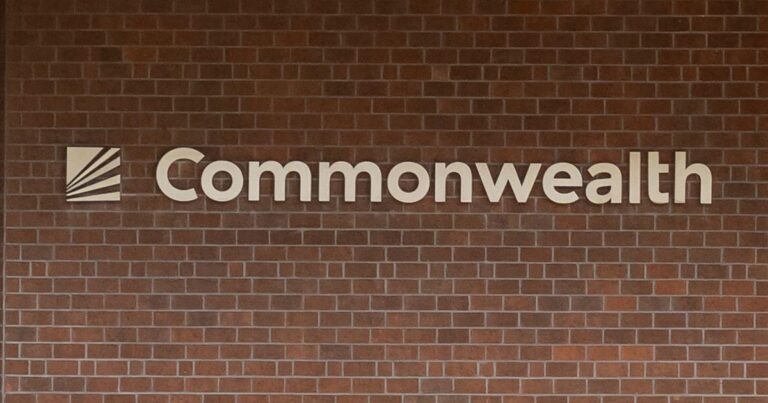It’s been over a week since LPL Financial announced plans to acquire Commonwealth Financial Network, which includes a group of fiercely independent, high-quality advisors. The deal has many advisors weighing their options from LPL, including any retention offers.
It also has advisors fielding recruiting offers from other independent broker/dealers, many of which are boosting their typical deals by 30% to 50%, according to several recruiting experts, who declined to be named.
Osaic, for instance, is offering a recruiting package of 115 to 125 basis points on AUM specifically to Commonwealth advisors, they said, with a year one, two and three lookback on net new assets above the target upon affiliation. That deal could end up as high as 150 basis points. And like Commonwealth, Osaic also clears through National Financial Services, so those advisors wouldn’t have to change clearing firms.
“You’re going to have these Commonwealth people that probably turned their nose up to Osaic for many, many years,” one recruiter said. “But now, with this tide turning and the difference in the marketplace, you could see some of these people just throw that to the side and say, ‘NFS clearing and a big deal—Osaic might just be the destination.’ In the end, they might end up winning quite a bit of business out of this just because they’re throwing the kitchen sink at these people.”
For its part, Osaic would not discuss what it is offering in detail but confirmed that it feels the firm would be a good landing spot for Commonwealth advisors considering a move.
“While Osaic cannot comment on specific details regarding our Transitions Assistance Package, many advisors across the industry, including those at Commonwealth, align with profiles that make them eligible for our enhanced transition offering,” said Kristen Kimmell, executive vice president, business development at Osaic. “In addition, advisors who affiliate with Osaic gain access to capital support for those seeking growth opportunities. Our culture is closely aligned with the values great advisors are accustomed to, including flexible affiliation models and custodial options. Thanks to our strong, long-standing relationship with NFS and Pershing, Osaic can offer advisors a solution that ensures a simplified and accelerated transition.”
Cetera is offering Commonwealth advisors 120 to 125 basis points for on-platform assets, sources said. For off-platform assets, which include 401(k) business or directly-held mutual funds, Cetera will pay 25 to 50 basis points.
Raymond James Financial Services and Kestra Financial are also sweetening their deals for Commonwealth, offering 100% of GDC.
On Thursday, Todd Mackay, president of Cetera Wealth Management, wrote an open letter to Commonwealth advisors explaining why Cetera is the best home for them. Mackay cites Cetera’s “advisor-centric community approach,” its home-office support, growth resources, “high-touch support and seamless transition,” and use of NFS, to name a few.
“At this point, you aren’t just evaluating a platform—you’re evaluating your future,” he said. “You built your career on trust, autonomy and care for your clients. Now is the time to explore your options and I’d be honored if you would consider joining our great community.”
Spokespeople for Raymond James and Kestra did not return requests for comment prior to publication.
“We’ve seen this developing for years now, and it makes sense that firms are scaling up with the mass generational wealth transfer underway,” said Scott Briganti, co-CEO and founder at Successful OnBoarding. “And everybody’s trying to get as much in the way of assets as they can today to prepare for what’s going to happen here in the years to come. This is a transformative event for all parties involved and competitor firms, and you can bet everybody’s going to be putting their best foot forward.”
Jodie Papike, CEO and managing partner of Cross-Search, said these offers might look good in writing, but the numbers don’t tell the full story; sometimes, there are hurdles advisors have to hit to get the full amount.
“The other thing to consider is the firms that are larger and are either public or owned by a private equity firm, they’re just naturally going to throw around more money,” Papike said. “They’re so focused on growth, and they have to have that growth in order to accomplish what they need to for shareholders.”
Meanwhile, LPL’s retention packages range from 10 to 50 basis points on assets, with notes ranging from seven to 10 years.
“Our retention program is tailored for Commonwealth advisors, grounded in maintaining their community and industry-leading experience, as well as their all-in ongoing economics,” a spokeswoman for LPL said in a statement. “In addition to our commitment to a seamless conversion, we’ve added financial incentives based on several factors, including assets under management, revenue, asset mix, growth rate and tenure at Commonwealth.”
Historically, with other acquisitions in the IBD space, it’s been more universal in the way firms calculate those retention packages, Papike said. But with this one, there are a lot of different factors that go into it. Length of time with the firm, for instance, is one she’s not seen before. If an advisor just recently joined Commonwealth and they’re already under a transition package, LPL will likely look at that amount, what they would typically offer for retention and then subtract the difference. Other firms are not factoring in the length of time with Commonwealth in their transition deals.





